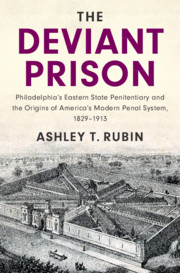[The Yale Law Journal has announced the following Call For Papers. DRE]
Special Issue on the Law of the TerritoriesDate Posted: March 23, 2021; Submission Deadline: July 15, 2021
The
Yale Law Journal invites submissions on the Law of the Territories, covering the broad range of local, federal, and international issues arising out of and affecting the U.S. territories and their people, for Volume 131's Special Issue.
The Law of the Territories is an emerging field that explores novel legal questions facing residents of the U.S. territories. More than 3.5 million people-98% of whom are racial or ethnic minorities-live in American Samoa, Guam, Puerto Rico, the Northern Mariana Islands, and the U.S. Virgin Islands. They are unable to vote for President and lack voting representation in Congress, even though Congress exercises plenary power over their communities. In the last five years, the Law of the Territories has experienced a resurgence of activity before the Supreme Court not seen since the Insular Cases, a series of controversial decisions from the early 1900s that endorsed the United States's annexation and governance of its colonies. The Court's holdings in the Insular Cases have received broad criticism for their racist underpinnings and departure from foundational constitutional principles. But the Court has hesitated to either overrule them or fundamentally reconsider its territorial jurisprudence. Meanwhile, each of the territories has developed its own distinct body of law-and the people of the territories have pressed with increasing urgency for self-determination and decolonization through both domestic and international processes.
We seek Articles and Essays that address unresolved debates, emerging controversies, and unexplored problems related to the Law of the Territories, including, but not limited to:
- the relationship between federalism and empire;
- the challenge of cultural accommodation within the United States's constitutional framework;
- the relevance of international models of association to the debate over territorial decolonization, and more broadly, the light that comparative perspectives might shed on the issues surrounding self-determination;
- the intersection of race, gender, and class inequality in the context of U.S. colonial governance;
- and the promises and pitfalls of territorial autonomy.
Eligibility and Submission Details. The Journal invites submissions from both established and emerging scholars. We also welcome submissions from practitioners, jurists, students, and others with special expertise on the territories. Consistent with our Submissions Guidelines, we will not review Articles or Essays written by current J.D. students at Yale Law School or authors who were J.D. students at Yale Law School at any time during Volume 131's submissions window. We specifically encourage authors from the territories to submit.
For Articles, we strongly encourage submissions of fewer than 25,000 words, including footnotes. For Essays, we strongly encourage submissions of fewer than 15,000 words, including footnotes.
The deadline to submit an Article or Essay is July 15, 2021. To submit, please use our online submission system. If this is your first time using our submission system (launched in February 2021), please make a new account by clicking "Not a member?" on the login page. When you are asked to select a "Submission Type," select "Special Issue: Law of the Territories" (do not select "Article" or "Essay").
Please direct questions about this Special Issue to the Managing Editors, Josh Altman (joshua.altman@yale.edu) and Sammy Bensinger (samantha.bensinger@yale.edu).

















